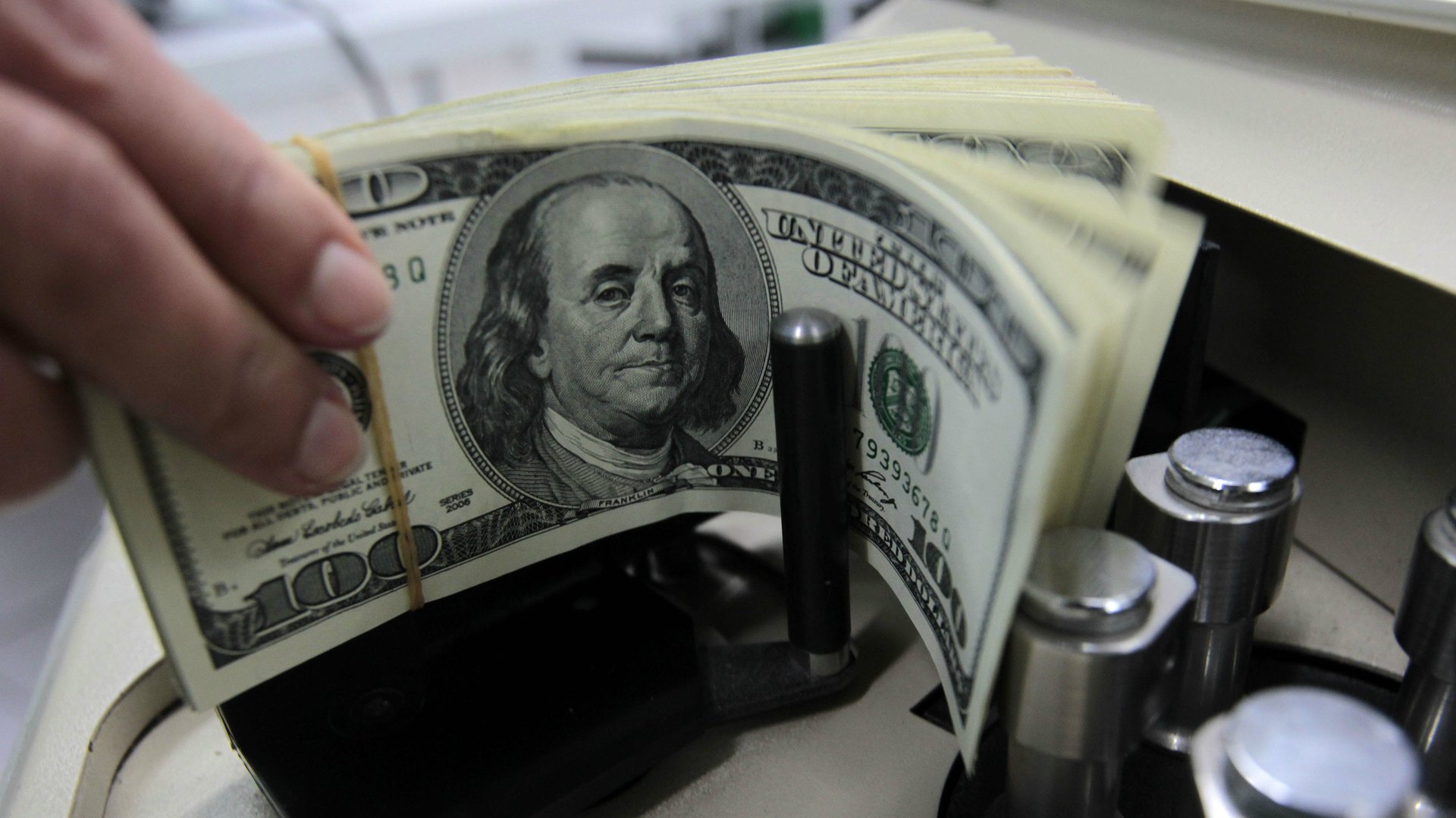Philadelphia’s ban on cashless stores could backfire
Philadelphia is on its way to becoming the first major US city to ban cashless stores.


Philadelphia is on its way to becoming the first major US city to ban cashless stores.
Merchants that don’t accept cash are a problem for people without access to bank accounts or credit, as well as those, like the elderly, uncomfortable with newer forms of payment. It’s important to ensure that society’s most vulnerable people aren’t left behind as technology—and that includes money—evolves. But research in the UK suggests that making cashless stores illegal isn’t the best way forward.
Cash is on life support in a small number of countries, like China and Sweden, where it’s being replaced by apps and payment cards. But cash is thriving just about everywhere else. In the US, paper notes and coins account for about 36% of payments, by number of transactions. Americans carried around an average of $59 in their wallets and purses in 2017, a slight increase from the year before ($57.20).
Cash use is, however, dwindling in Britain, which makes it an example of what may be store for other countries as contactless payments and online commerce threaten old-fashioned notes and coins. The UK’s Access to Cash Review found that millions of people weren’t prepared for the transition. The report examined ways to make sure the elderly, poor, and other vulnerable groups aren’t left behind as the country embraces digital payments.
Banning cashless shops and stores would be difficult to enforce, and could pit small business owners against the government, Natalie Ceeney, chair of the Access to Cash Review (pdf), said in an interview. The review was launched in July 2018 and included online surveys, and evidence from regulators and commercial companies.
Banning cashless stores also doesn’t address the root of the problem: in China and Sweden, “the rising costs of handling and banking cash” is the main reason merchants refuse to accept paper and metal currency, according to the report. Some merchants avoid cash to reduce the risk of violent robbery.
A law requiring stores to continue using cash won’t alleviate those problems. That said, the UK review suggested making sure utilities and government services accept cash, and reminding organizations of the downsides of not accepting physical money.
Ceeney had several recommendations for British officials that could potentially apply to Philadelphia and other cities. First, make sure the cash infrastructure is efficient, and cheap, so that merchants will want to accept it. Most consumers, after all, like having cash as an option, even in places where digital payments are more common. Secondly, look at innovations to bring poor people, immigrants, and other parts of society into the digital payments world. There are about 8 million US households that don’t have a bank account, which makes it harder to save, and also means financial services (money transfers, insurance) are either more expensive or unavailable. On its own, just protecting cash won’t solve that problem.
Another observation from the British study is that it’s far easier to protect cash infrastructure—from ATMs to cash sorting and armored car services—than it is to revive it once it’s gone. It makes sense for cities like Philadelphia to plan ahead, even though cash is far from threatened in the US.
It’s a complicated issue—for instance, there’s still not a satisfactory answer for dealing with the loss of privacy when every transaction leaves digital fingerprints. Britain’s research suggests that dealing with such an important societal shift doesn’t have just one answer.